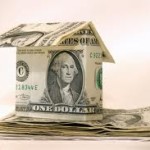Where Are Home Prices Headed?

During the first half of 2013 home prices zoomed up at a ferocious rate. It seems the rest of the year will not follow the same pattern.
With the increases of interest rates over the past couple of months there seems to be a reset of demand by home-buyers. For example, in May interest rates were at their low of 3.59% then rose to 4.58% in June and July we have seen rates even go higher. (Source: Mortgage Banker Association)
These steady increases caused by the expectations and confirmation that the Federal Reserve will be cutting back on their bond-buying programs around the end of the year. Investors are demanding a higher yield on their mortgage money holdings because of the Feds action. Investor now will have a higher risk and lower yield at the current interest rate.
Increased interest rates on real estate loans have a negative effect on home-buyers. One of the rule of thumb says every 1% increase in interest rates reduces affordability by 10%. What this means is because of the recent increases in interest rates home-buyers are paying an extra 10% if they finance their home purchase.

Watch these 7 areas for the rest of the year to keep current on where the price of homes are heading.
1.) What is the interest rate that will have the highest impact? Analysts at Merrill Lynch and B of A say interest rates are still historically low, however, when they reach the 6% housing will begin to be looked at by home-buyers as not being affordable. Home-buyers look at future affordability as one of their litmus test when buying a home. If it is becomes less affordable to them they are more reluctant in buying the home. Of course banks will bring a better adjustable rate loan to the market which will off set any hard the fixed rate loan may suffer.
2.) Those home-buyers on the fence will now get off of it, right? Not really. There isn’t any data that can prove or show higher interest rate causes higher demands for homes.
3.) Who loses when interest rates rise? It will affect all price point including move-up home-buyers and luxury home-buyers. The hardest hit will be the first time buyers. Higher interest rates can make it so they can’t afford to buy the home they could in May when interest rates were at their lowest. For the upper-end home-buyers they now will fix up their existing homes instead of buying a home with a low-interest rate. It’s cost effective that way for them.
4.) Who wins when interest rates rise? Investors could be the only possible winners because of a couple of reasons. First it’s possible for them to buy up all the least expensive homes and turning them into rentals. One fixed up the investors will rent at an inflated price to the previously would be homebuyers. Secondly, all the “funny money” from low-interest rates is out of the market causes less competition. Investors will be able to negotiate hard on every point in the terms of the agreement to purchase.
5.) Will inventories of homes grow? It appears so. There are less multiple offers on a home today as opposed to back in February, March, April, and May. We still have multiple offers but today we may see 3 offers where in the first part of the year we saw 13 offers on the same house. With higher interest rates and fewer home-buyers you will see a slower real estate market the last 6 months of 2013. This is actually good for all parties
6.) Are we looking at the beginning of a new real estate bubble? Anything can happen but I don’t think this is in the future now. If interest rates continue to rise it definitely will have an impact on home sales. Over the last year and one-half we have seen high demand from home-buyers, distressed home brought to the market, and fewer home brought on the market. These factors show an up market.
The national indicators of the various indexes show a 12% appreciation in home prices over 2012 this year. This rate of appreciation is not sustainable. So the increase of interest rates is actually a positive thing. This will produce a sustainable price increases over the long haul benefiting us all.
7.) What will tell us when we are in a new real estate market? The first indicator for the new market will be what happens in the new home sales sector. This is because these figures show “contracts signed”. One of the problem with taking this to the bank is builders may “buy down” the low for the home buyer, which is what home sellers are not doing at this time.
Another problem is the delay in this data reaching the public. June figures will be out in July. These figures will still be based on old interest rates and will not reflect the increase today’s increased rates.
Please comment below and/or subscribe over on the right side.
Thank you and I hope this has been beneficial to you.
Tags: buy, buyers, condo, Foreclosure, home, homes, housing, keith, Redwood City, san mateo county, sfbayhomes.com, Short Sale, sotheby's
